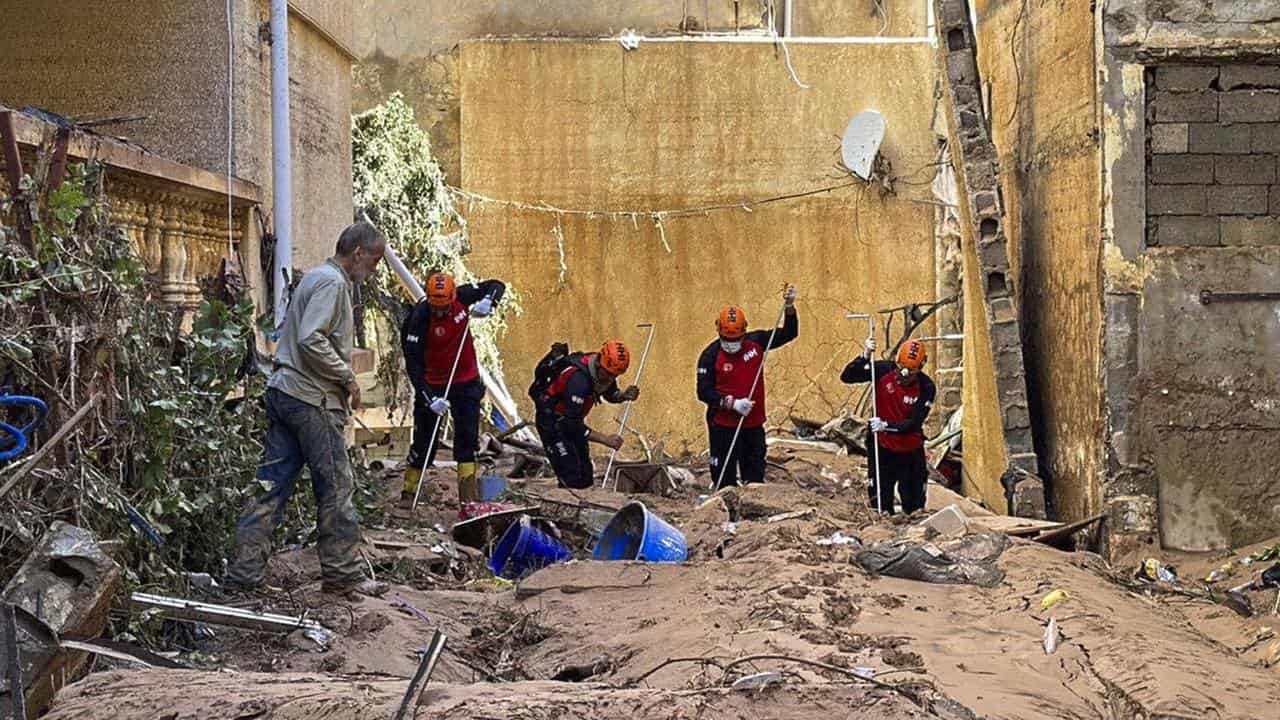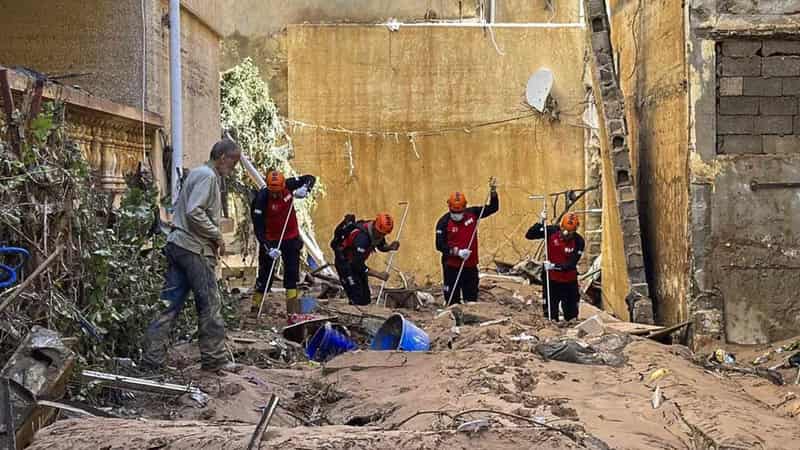
The United Nations aid chief says Libya needs equipment to find people trapped in sludge and damaged buildings after floods that have killed thousands, as well as primary health care to prevent a cholera outbreak among survivors.
"Priority areas are shelter, food, key primary medical care because of the worry of cholera, the worry of lack of clean water," Martin Griffiths told a UN briefing in Geneva.
He said the UN humanitarian office had sent a disaster co-ordination team of 15 people to Libya who had been redeployed from Morocco, which suffered an earthquake last week.
Swathes of Derna, the centre point of the destruction in the country's east, were obliterated by flooding on Sunday night, bringing down whole buildings while families were asleep.
Griffiths said that a suggestion by the mayor of Derna to create a maritime corridor to deliver aid could be a viable option given that the city is on the Mediterranean Sea.
"You still keep coming in from the land, you're finding the people who are fleeing south, fleeing south from Derna, towards aid, away from the cities, so you need to support them as well," he said.
"But certainly, adding the maritime option makes complete sense."
The World Health Organisation (WHO) and other aid groups on Friday called on authorities in Libya to stop burying flood victims in mass graves after a UN report showed more than a thousand people had so far been buried in that manner since the floods.
"We urge authorities in communities touched by tragedy to not rush forward with mass burials or mass cremations," said Dr Kazunobu Kojima, medical officer for biosafety and biosecurity in the WHO's Health Emergencies Program, in a joint statement sent out by the UN health agency with the International Committee of the Red Cross (ICRC) and the International Federation of the Red Cross and Red Crescent Societies.
The statement called for better-managed burials in well-demarcated and documented individual graves, saying that hasty burials can lead to long-lasting mental distress for family members as well as social and legal problems.
The bodies of victims of trauma from natural disasters "almost never" pose a health threat, it said, adding the exception was when they were in or near freshwater supplies since bodies might leak faeces.
A UN report published on Thursday said more than a thousand bodies in Derna and more than a hundred bodies in Albayda had been buried in mass graves after the floods on September 11.
"Bodies are littering the streets, washing back on shore and are buried under collapsed buildings and debris," Bilal Sablouh, Regional Forensics Manager for Africa for the ICRC, told a Geneva briefing.
"In just two hours, one of my colleagues counted over 200 bodies on the beach near Derna."
Sablouh warned unexploded ordnances, common in some parts of Libya, posed a risk for those involved in recovering the dead.
The ICRC sent a cargo flight to Benghazi on Friday with 5000 body bags, he said.
The World Meteorological Organisation said the huge loss of life could have been avoided if Libya - a failed state for more than a decade - had a functioning weather agency in place.
"If there would have been a normally operating meteorological service, they could have issued warnings," WMO Secretary-General Petteri Taalashe said in Geneva.
"The emergency management authorities would have been able to carry out evacuations ... And we could have avoided most of the human casualties."
Other commentators drew attention to warnings given in advance, including an academic paper published last year by a hydrologist outlining the city's vulnerability to floods and the urgent need to maintain the dams that protected it.
Mohamed al-Menfi, head of the three-member council that acts as the presidency in Libya's internationally recognised government, said on X the council had asked the attorney general to investigate the disaster.
Those whose actions or failure to act were responsible for the failure of the dam should be held accountable, along with anyone who held up aid, he said.









